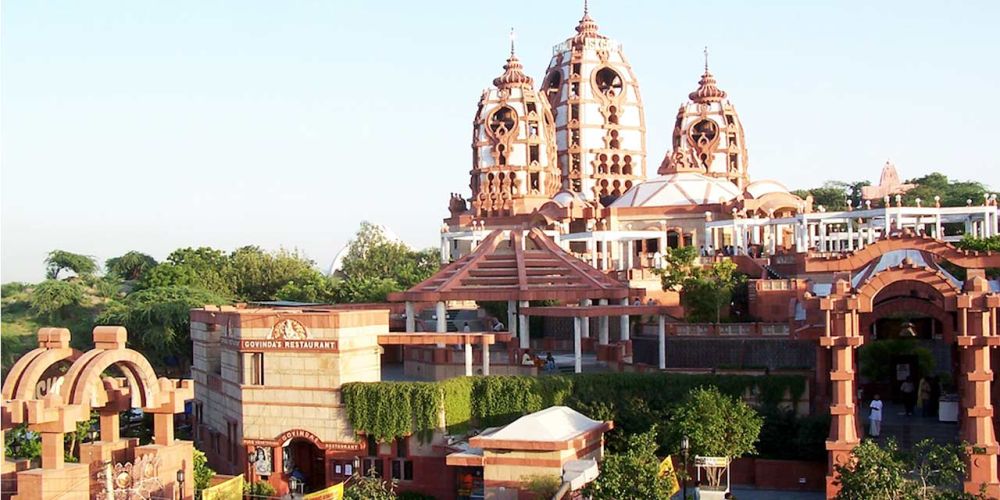

The ISKCON Temple in Delhi, also known as the Sri Sri Radha Parthasarathi Mandir, is one of the most prominent spiritual sites within the bustling capital city of India. Founded by A.C. Bhaktivedanta Swami Prabhupada in 1998, it's part of the International Society for Krishna Consciousness (ISKCON) and serves as a center for Vedic learning and Krishna worship. The temple complex stands out with its beautiful architecture and serene ambiance, attracting visitors globally.
The tourism history of ISKCON Temple Delhi has been somewhat contemporary when compared with India's age-old pilgrimage traditions. Since its establishment, it has become a significant point of interest for both domestic and international tourists. Initially visited by devotees for religious purposes, the site soon gained popularity among travelers seeking spiritual experiences, Indian culture, and architectural beauty.
The temple is widely esteemed for its stunning architecture, which features an elegant blend of traditional Vedic and modern styles. Visitors are often mesmerized by the detailed carvings and paintings that adorn the temple interiors. The main deities worshipped here are Sri Sri Radha Parthasarathi, Sita Rama Laxman Hanuman, and Sri Sri Gaura Nitai. Additionally, the temple complex includes a museum and multimedia shows, which delve into the Vedic scriptures and stories of Lord Krishna. The annual celebration of festivals like Janmashtami and Gaura Purnima sees a surge in tourist footfall, enhancing the temple's religious tourism importance.
The influx of tourists to the ISKCON temple not only showcases the prominence of spiritual tourism in India but also significantly contributes to the local economy. The surrounding areas of the temple have seen a growth in businesses catering to the needs of the visitors, ranging from traditional Indian eateries to souvenir shops selling religious artifacts and books.
In recent years, there has been a shift towards experiential and wellness tourism. The ISKCON Temple has adapted by offering various activities and facilities, including yoga classes, vegetarian cooking workshops, and spiritual discourses, appealing to those looking for holistic experiences. Similarly, the concept of 'Darshan' tourism, where devotees visit temples across the country, has gained popularity, with ISKCON Temple being a significant destination on these itineraries.
Eco-tourism is another emerging trend; the temple premises are maintained with an emphasis on cleanliness and green practices, aligning with the rising awareness and demand for sustainable travel offerings.
Looking forward, the ISKCON Temple in Delhi is all set to remain a beacon of spirituality and cultural discovery for tourists. With an ongoing effort to enhance visitor experiences through improved facilities and immersive activities, the temple seeks to not only remain a sacred site but also evolve as a center for learning, culture, and intercultural understanding.